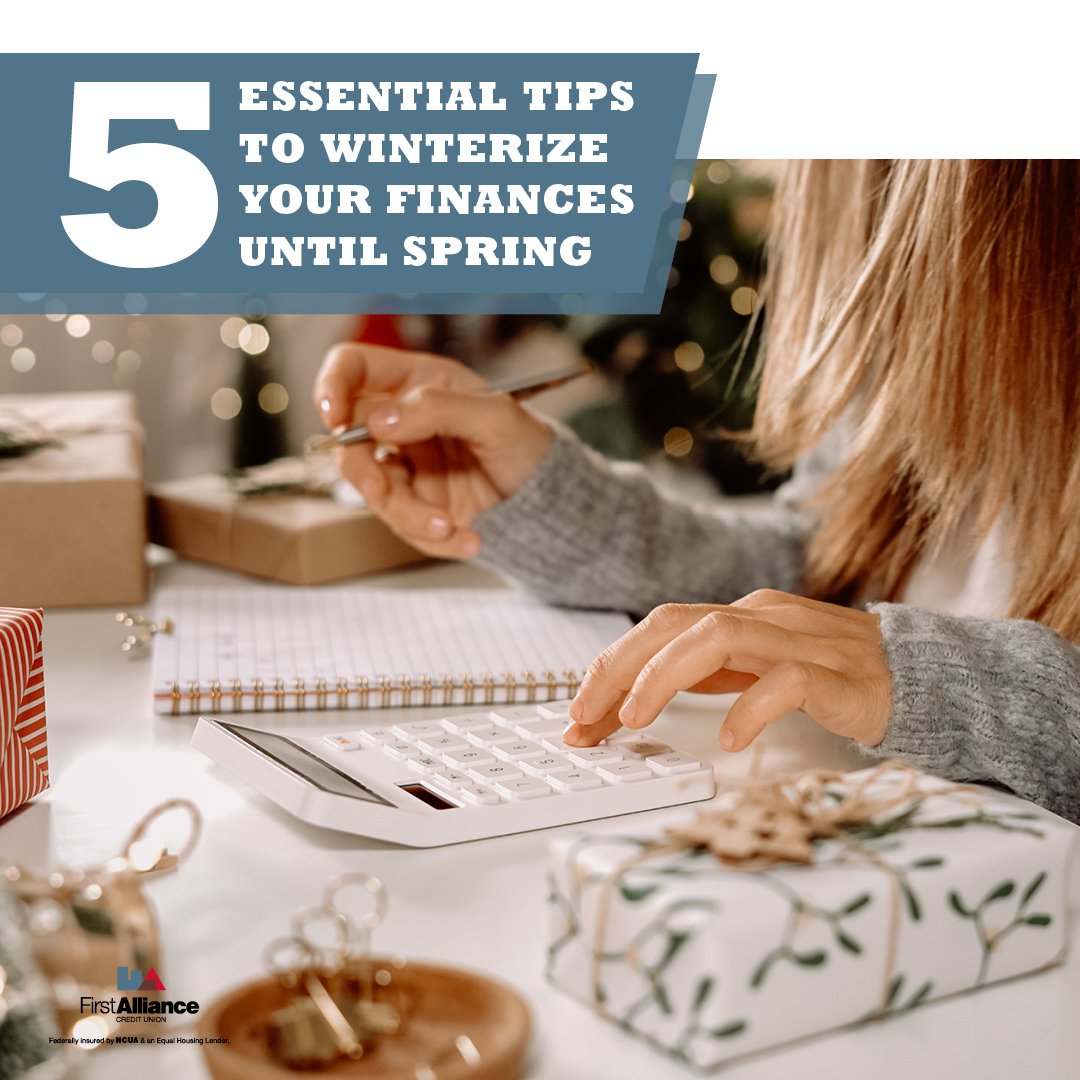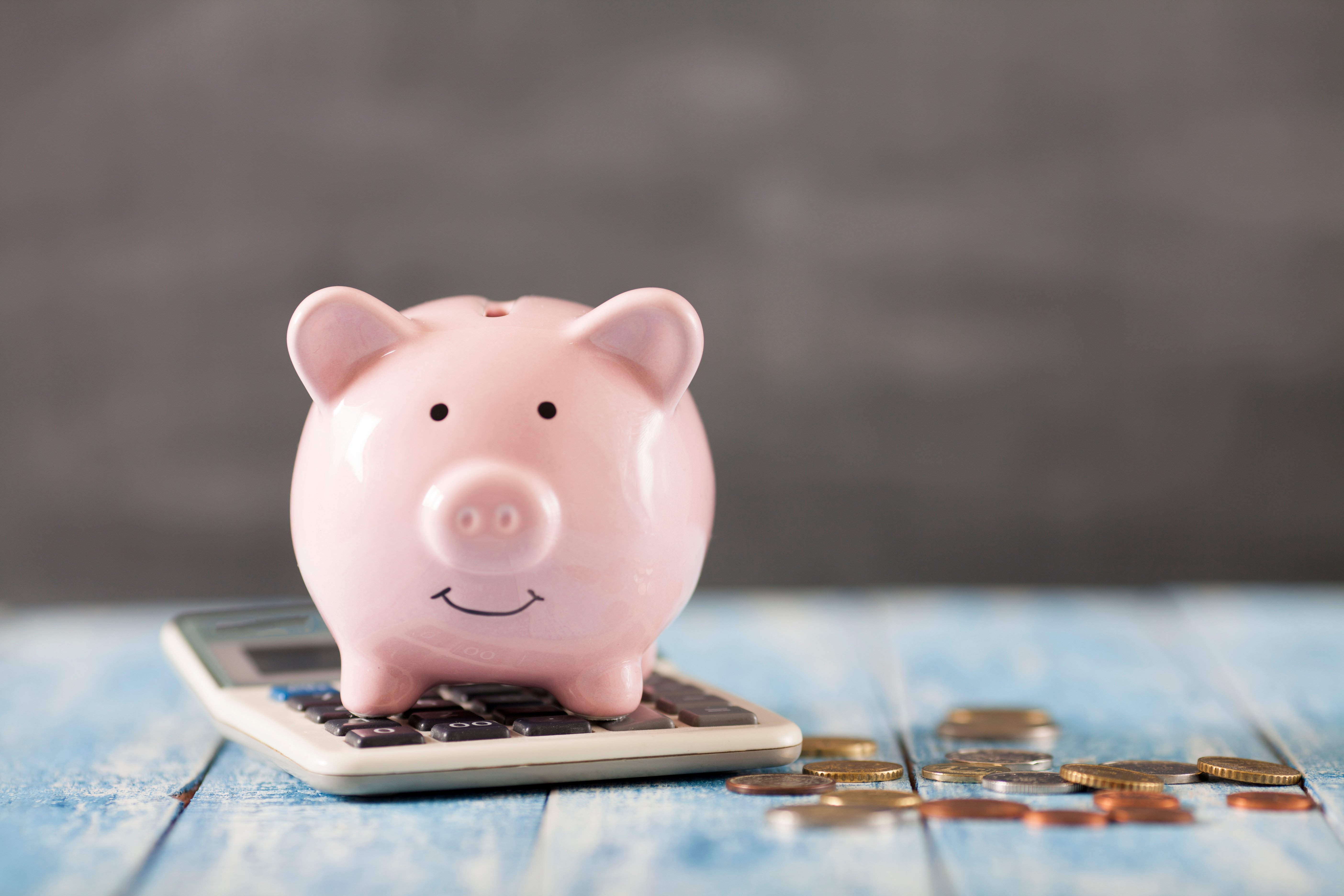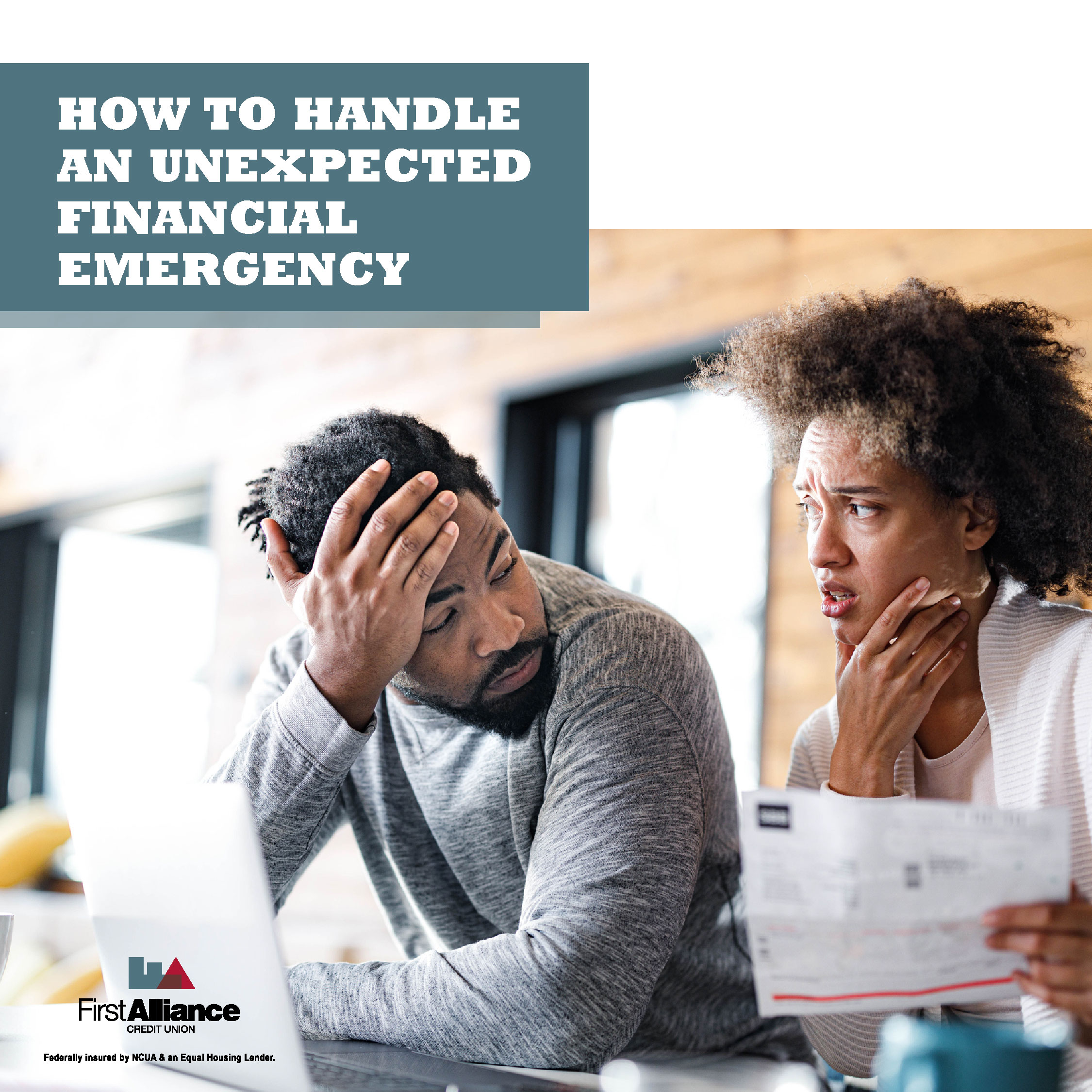Interview with an Expert: Budgeting and Saving Advice
Everyone says they want to save more money and be better at managing their finances. But if you don't know where to start or have questions along the...
7 min read
 Chris Gottschalk
:
Dec 7, 2023 4:45:00 AM
Chris Gottschalk
:
Dec 7, 2023 4:45:00 AM

Every Midwesterner knows the value of preparing for winter. You need to make sure your furnace can take the increased demands you’ll put on it, make sure your car can handle the winter roads and start solidifying your plans for the holidays.
![]() In addition to those other steps, you’ll also want to take some time to winterize your finances. This will not only make the transition from fall to winter smoother, it may also save you some money.
In addition to those other steps, you’ll also want to take some time to winterize your finances. This will not only make the transition from fall to winter smoother, it may also save you some money.

If you’re wondering why you have to winterize your finances, we understand. After all, it’s not like you need to thaw it out before using it.
However, winter can have a significant impact on your finances. Winter comes with a lot of expenses that other months don’t, and most of these are related to protecting yourself from the cold. For instance, you’ll spend more on keeping your home heated, and you’ll also be keeping the lights on more as the nights grow longer.
Of course, winter is also the time when three major holidays converge—Thanksgiving, Christmas and New Year’s, as well as Hanukkah and Kwanzaa. While it’s fun to celebrate these holidays, there’s no getting around the fact that it costs money to travel, get gifts, prepare groceries and do holiday-related activities.
If that weren’t enough, winter weather can also cause some unexpected emergencies, from landing your car in the ditch to having your travel plans disrupted by a sudden blizzard. In order to solve these problems, you’ll need extra money in your budget or a robust emergency fund.
Winterizing your finances won’t completely eliminate these expenses, unless you want to do your best impersonation of Ebenezer Scrooge. What it will do, though, is help you to reduce expenses where possible, and help you anticipate other expenses so you can either save up for them or have a plan in place to pay off your expenses quickly.
The first step you should take to winterizing your finances is one that most homeowners are already aware of—winterizing your home. There are a lot of great articles on how to do this, but here are some quick tips to help you get started.
First, get your furnace inspected by a reputable company. You’ll find quite a few of them around Rochester, and they’ll look at your heating system and let you know whether or not it’s ready to handle the cold months.
Getting your furnace inspected ensures that it’s running efficiently, so you won’t use more natural gas or electricity than you need to. This can potentially save you a lot of money, depending on the size of your house and how much you need to heat it.
However, getting your furnace inspected can also alert you if it has issues before it actually breaks down. You might not be happy about having to pay for the repairs, but it’ll cost a lot less than getting an emergency repair in the middle of winter. You’ll be more comfortable, too.
Even if the worst happens and the furnace technician tells you it’ll need to be replaced soon, you’ll still have the advantage of knowing about the problem before it happens. This will give you time to save up money to buy a new furnace and get it installed, instead of having to get an emergency loan or strain your credit card to the breaking point.
Changing your furnace filter reduces wear and tear on your HVAC system, which will save you money on repairs in the long run. However, it also has the more immediate benefit of reducing the amount of energy your furnace uses. According to Energy Star, changing your air filter regularly can reduce your heating and cooling system’s energy usage by up to 15%.
The whole reason gutters exist is to direct water away from your house and prevent water damage. If your gutters are clogged, though, the water can seep in through your roof, resulting in leaks. You can stop this problem before it starts just by taking a few minutes to clean out your gutters.
A smart thermostat can save you a lot of money. According to the Department of Energy, you can save as much as 10% on your heating and cooling bill a year just by turning your thermostat back 7-10 degrees Fahrenheit for 8 hours a day.
Program your thermostat to lower the temperature in your home during times when you’re at work and when your children are in school. You can also lower the temperature at night, when everyone is sleeping under the covers.
Fortunately, winterizing your car isn’t quite as intensive as winterizing your home. However, it can be just as effective in saving you money by reducing your risk of accidents and auto repairs. Here’s what you need to do:
As previously mentioned, the holidays can be expensive. When you create a holiday budget, though, you can figure out just how much you can expect to pay. Even better, you can adjust the costs and give yourself some peace of mind that will last until the holidays are over.
Creating a holiday budget is a lot like setting up a monthly budget, but instead of trying to balance your expenses against your income, you’re going to list all the potential expenses you expect to incur over the holidays. This can include items like:
Airplane tickets
You’ll also want to add and subtract categories to take into account your personal holiday plans.
Once you have all your potential categories listed, figure out how much you plan to spend on them. Then add up the total of all those amounts to discover how much this year’s holiday season will cost. If the total is too high, go back through your budget and look for ways to reduce costs.
The best tip for creating a holiday budget is to start doing so early. This will give you more time to save for the holidays, as well as figure out the most effective way to pay off what you’ll owe if you have to borrow money.
You’ll also want to track your holiday spending in order to make sure you’re not overspending in any one category. Finally, when the holidays are done, look over your holiday budget and evaluate its effectiveness. Make a note to yourself if you overspent in any category, and then save the budget so you have an idea of what you’ll need to save for next year’s winter holidays.
If you’re a little skeptical, we don’t blame you at all. How on earth does cooking your own food relate to winterizing your finances?
The answer is that people tend to eat more in the winter than they do during the summer. That can drive up your food bills, especially if you eat out. The website CNET ran some numbers on how much you could save on some popular restaurant dishes vs. making them yourself and found that you can save a lot—at least 36%, and in some cases, the savings were closer to 70%.
If you want to save even more money, you can plan out what you’ll want to eat during the week to save on groceries. It’s hard to figure out just how much you’ll save, but what most people agree on that it will save you a significant amount of money. As an added bonus, you won’t have to engage in the usual “What’s for dinner” discussion with your partner every single night.
If an emergency hits during winter, you’ll want to be able to deal with it quickly, before the ice, snow and subzero temperatures compound the problem. The best way to deal with a winter emergency is to make sure you have the funds in place to take care of one if it arises.
The best way to deal with an unexpected emergency is to have a robust emergency fund you can draw on to take care of anything from getting a tow truck to replacing your furnace. Even if you don’t have the recommended three to six month’s worth of salary in your savings account financial experts recommend, every dollar in your emergency fund is a dollar you don’t have to borrow and pay interest on. The important thing is to regularly put money into your emergency fund to make sure it’s always growing until you hit that goal.
If you need a bit of extra help to cope with an emergency, though, there are other options available. For instance, you can apply for a personal line of credit or a home equity line of credit, also known as a HELOC. You can borrow money from these types of accounts up to your credit limit, and you’ll only have to pay interest on the amount you borrowed.
However, if you’re really in a jam, you might want to apply for a No Hassle emergency loan from First Alliance Credit Union. If you qualify, you’ll get $1,000 you can use to take care of any unexpected expenses, and you’ll get same day approval. It can be a lifesaver if you need to cover an emergency.
During winter, you may encounter emergencies such as power outages, burst pipes, heating system failures, and winter storms. It's important to be prepared for these situations by having emergency supplies, a backup heating source, and a plan for staying warm and safe.
While you're taking all these steps to winterize your finances, don't forget to adjust your monthly budget. You'll want to plan ahead to increase the money you allocate to budget categories like heating, clothes, entertainment and gasoline and make sure your total expenses aren't more than your monthly income.
While you're increasing how much money you'll spend in certain budget categories, you'll also want to see if you can decrease the amount you spend in other areas to keep your budget balanced. It's worth pointing out that, thanks to holiday expenses, you may very well have to borrow money to cover your expenses. Don't worry--this happens to a lot of people during the winter holidays.
If you know you'll have to borrow money for your holiday spending thanks to the holiday budget you created, the best thing you can do is to make a note of how much you borrowed, and where you borrowed it from. Once the holidays are over, you can start coming up with a plan to pay off your holiday credit card debt, either by decreasing your spending in other areas or by getting more money to pay off your debt.
It's worth pointing out that, while you can do your budgeting with a pencil and paper, many people prefer to take their budgeting digital. You can use a spreadsheet to create your budget, for instance, or you can use one of the many budgeting apps available, like the My Money tool on First Alliance's mobile app.
There’s no denying the fact that winter can be expensive. However, if you take steps to prepare for winter financially, you can minimize the amount of money you’ll have to spend, save up for holiday and emergency expenses and even get a plan in place to pay off any money you borrow.
You can also make sure your finances are ready for winter when you become a member of First Alliance Credit Union. We have free downloadable resources that will help you create and adjust your budget, and our member advisors can give you expert advice about the best way to save for events like holidays. You can even apply for a personal line of credit to make sure you’re prepared for winter emergencies.

Everyone says they want to save more money and be better at managing their finances. But if you don't know where to start or have questions along the...

Financial emergencies can happen at any time to anyone. You might get into your car only to discover the engine is dead, discover that your house...

As every Midwesterner knows, fall is full of opportunities. These opportunities range from chances to have some seasonal fun, like going apple...